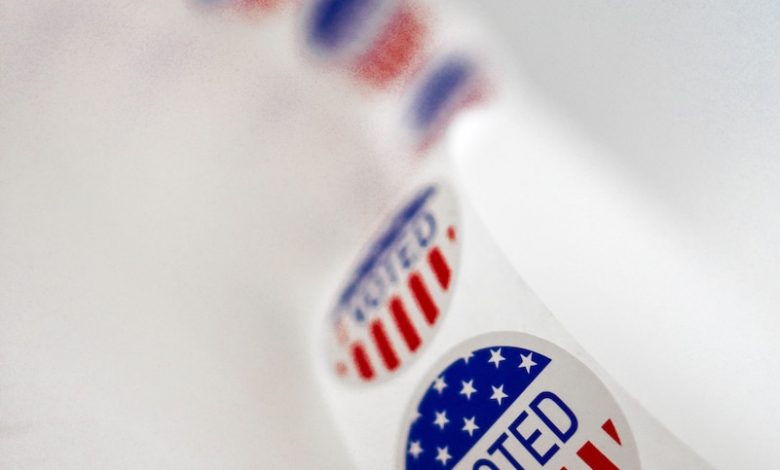
Table of Contents
AI in Political Ads
Political advertising has evolved dramatically with the advancement of technology. Google has now taken a step to ensure transparency with the use of artificial intelligence (AI) in political ads across its platforms. This means that any political ads that use AI to alter voices or visual imagery will now require a clear visible disclosure.
Requirement of disclosure for AI-altered political ads by Google
Google has introduced a new policy, requiring political advertisers to provide a prominent disclosure if their ads include synthetically altered imagery or sound. This not only includes Google's search engine but also extends to its popular video-sharing platform, YouTube. The disclosure is intended to clearly inform users of the utilization of AI in modifying or generating the content of the ad. The alterations made possible by AI range from image manipulation to speech synthesis and change.
AI-generated election ads featuring altered imagery or sound must carry disclaimers
All AI-generated election ads will hereby need to carry disclaimers to notify the public about the synthetically manipulated content. It's not new for political advertising to involve fake images, videos, or audio clips. However, generative AI tools have made this demographic manipulation easier and far more realistic, posing a potential threat to the unbiased dissemination of political information. The disclaimer requirement installed by Google aims to tackle this growing issue.
Start of the new rule in mid-November
Plans to implement this policy will be in effect from November. This new ruling on AI-altered political ads' disclosure is just under a year away from the U.S. presidential election season and will undoubtedly make a significant shift in the presentation and reception of political advertising on these platforms.
Impact on the upcoming elections in the U.S., India, South Africa, the European Union, etc.
The requirement for disclosure, originating from one of the world's most influential tech firms, will undoubtedly have global implications. The expected impact will reach far and wide, not only affecting the next year's U.S election but several upcoming elections worldwide, including India, South Africa, and within the European Union. The role of AI-altered political ads on Google and YouTube is anticipated to be transformed due to this policy, spotlighting transparency in the digital political advertising landscape.
Role of AI in Current Political Environment
The use of AI in altering political content has rapidly become a focal point of attention in current political campaigns. The technological capabilities offered by AI are being exploited by various political groups to create compelling and captivating content, possibly stretching the truth in the process.
Applications of AI in the 2024 presidential campaigns like that of Florida GOP Gov. Ron DeSantis
Leading political figures, such as Florida GOP Governor Ron DeSantis, have integrated AI technology into their campaign strategies. For instance, DeSantis' campaign shared an attack ad against his GOP primary opponent, Donald Trump. The advertisement utilized AI-generated images portraying the former president in a fabricated scene, engaging in a hug with infectious disease expert Dr. Anthony Fauci.
Instances of AI usage by the Republican National Committee
The Republican National Committee is another notable user of AI in their political campaigns. In April, they published an entirely AI-generated ad depicting their projections for the future of the United States if President Joe Biden is reelected. The ad, featuring hyperrealistic imagery generated by AI, showed scenarios such as boarded-up storefronts, military patrols on the streets, and panic induced by waves of immigrants.
Use of AI-generated images in attack ads
AI technology enables political actors to create nuanced and visually persuasive attack ads. AI-generated images can be tailored to evoke specific responses and ideas from the viewers. However, such manipulative usage of AI underlines the necessity for regulations and transparency which Google aims to enforce with its new disclosure requirement.
Regulation of AI in Political Advertising
With AI becoming a preeminent tool in political campaigns, appropriate regulatory measures are being considered to ensure responsible use and adherence to democratic principles, while maintaining the efficacy of political messaging. The approach to regulation is two-pronged: oversight by federal election authorities and legislative measures to legally bind adherence to transparency norms.
Federal Election Commission’s potential regulations on AI-generated deepfakes in political ads
The Federal Election Commission (FEC) has identified the impact of AI-generated deepfakes in political advertising and has initiated a process to regulate such content. Deepfakes can exaggerate, distort, or completely fabricate scenarios using hyper-realistic synthetic imagery and sound, potentially misrepresenting political figures and their words. The FEC's planned regulations aim to curb any potential misuse of deepfake technology in forthcoming elections, particularly the 2024 U.S. Presidential Election.
Pending legislation requiring disclaimers on deceptive AI-generated political ads
On a legislative frontier, several lawmakers, including Senate Majority Leader Chuck Schumer, have shown intent to pass legislation that creates guiding rules for deceptive AI-generated content. The proposed guidelines are likely to mandate disclaimers for all AI-altered or generated political ads. Demonstrating its ripple effect, some states have already discussed or passed their legislation concerning the use of deepfake technology in political advertising. It is clear that any legislative actions taken will profoundly impact the transparency of AI use in political advertising and its subsequent influence on democratic processes.
Impact on Other Platforms
With Google taking the lead in regulating AI-altered political ads, other social media and advertising platforms may find themselves under pressure to set similar standards. The usage of AI in political ads is widespread and not confined to Google or YouTube.
Google’s action pressuring other platforms to regulate AI use in political ads
Google's decision to require disclosure for AI-altered political ads might set the tone for other digital platforms to follow suit. Ensuring clear communication about the synthetic alteration of content in political ads becomes crucial in maintaining integrity and transparency in the political advertising ecosystem. This move might stimulate other industry players to re-evaluate their policies and implement more robust disclosure requirements.
Policies specific to AI-generated political ads by Facebook, Instagram, and TikTok
Other social media platforms like Facebook, Instagram, and TikTok, which also host a significant amount of political advertising content, might be influenced by Google's policy. However, the policies of these platforms on AI-altered political ads as of now are not clear. The disclosure regulations imposed by Google provide these platforms with a model to emulate, should they decide to introduce similar policies.
Response from X, formerly Twitter
While social media platform Twitter (now known as X) already made the strategic decision to ban political advertising entirely in 2019, Google's disclosure requirement may still affect its stance. The move from Google might lead Twitter to revisit its policy towards political content and consider introducing nuanced regulations around the use of AI-altered content in non-advertising posts.




